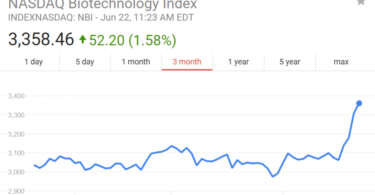North America is slowly pushing towards full cannabis legalization, which means we are going to see more publicly traded cannabis firms than ever before.
That also means if one cannabis company is especially good at something, it’s probably going to get acquired or receive an acquisition offer.
In terms of where we are in the story of cannabis, it’s still the first inning of the ball game. As the cannabis industry matures, it’s going to look a lot like the beer market. What I mean by that is you will have a few big players like Molson Coors Brewing Co., Anheuser-Busch InBev, and Constellation Brands (NYSE: STZ) dominating the industry.
To grow even further, big cannabis companies will buy smaller companies. There will still be room for smaller players to operate, but we’re going to see a lot of consolidation moving forward.
And to own these smaller players, smart executives working for the big guys are going to offer a lower premium from where the stock price is trading.
Related: Which Pot Stocks Are a “Must Buy?”
That means a company may only be willing to pay 5% or 6% more from where a stock is trading to make an acquisition.
For long-term shareholders, that’s a good thing, as it’s going to help create the nest egg that you deserve…
Why Cannabis M&A Is a Different Beast
To make a deal happen, companies in any industry have generally been willing to pay a premium, which is a higher number than what a stock price is trading for.
In other words, an acquirer is willing to value its target higher than the rest of Wall Street and pay a higher price to own them.
In the cannabis industry, we’re seeing a different philosophy.
Smart executives see the emergence of cannabis as a long-term event and understand the benefits of small companies pairing with larger companies. The seller may have a niche in terms of where it operates, what it sells, or who buys its products.
To get to the next level, they may just need more capital or need managerial experience to make that happen.
A larger company will have the capital, resources, and management experience the smaller company needs.
By acquiring a firm, a buyer can enter a new market without having to build anything from scratch. They don’t have to create a presence or go through a lot of red tape to get a new business up and running – the firm they want to acquire has already done all of that for them.
We saw that with the Cresco Labs Inc. (CSE: CL, OTC: CRLBF) and Origin House (CSE: OH, OTC: ORHOF) merger, where Cresco paid a premium of just 4.9% to own Origin House.
Next: Meet the Man Behind the Largest Marijuana IPO Ever
Understanding how much money there is still to be made, smart sellers don’t want to cash out and be done with the company they sell. Instead, they still want to be a part of the future success the merger could create. That’s good news for shareholders, as it means management on both sides of a deal want to make your shares as valuable as possible by continuing to grow the company.
When Deals Go Wrong
We’ve seen with Green Growth Brands (CSE: GGB, OTC: GGBXF) and Aphria Inc. (NYSE: APHA) that if the deal isn’t forward-looking enough or if there’s not a massive premium willing to be paid, a deal will not happen.
Now, we’re going to see some deals that work out and some that don’t. We’re going to see some offers accepted and some rejected.
Some will be structured right – others poorly.
That’s just how M&A activity works.
Here's the big takeaway that I need to make sure you understand…







